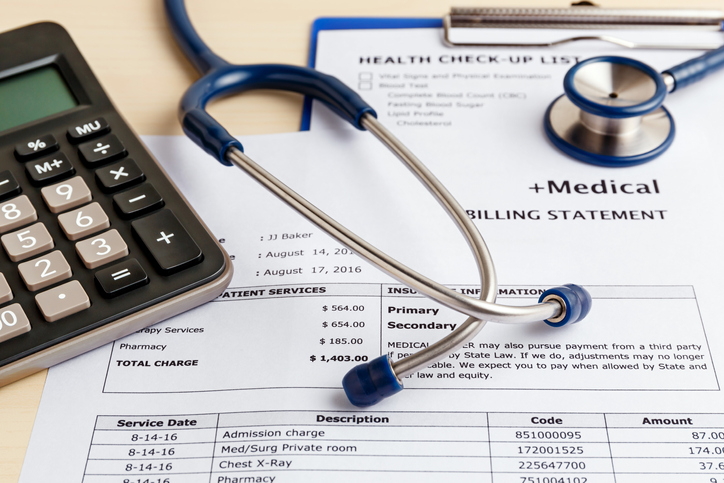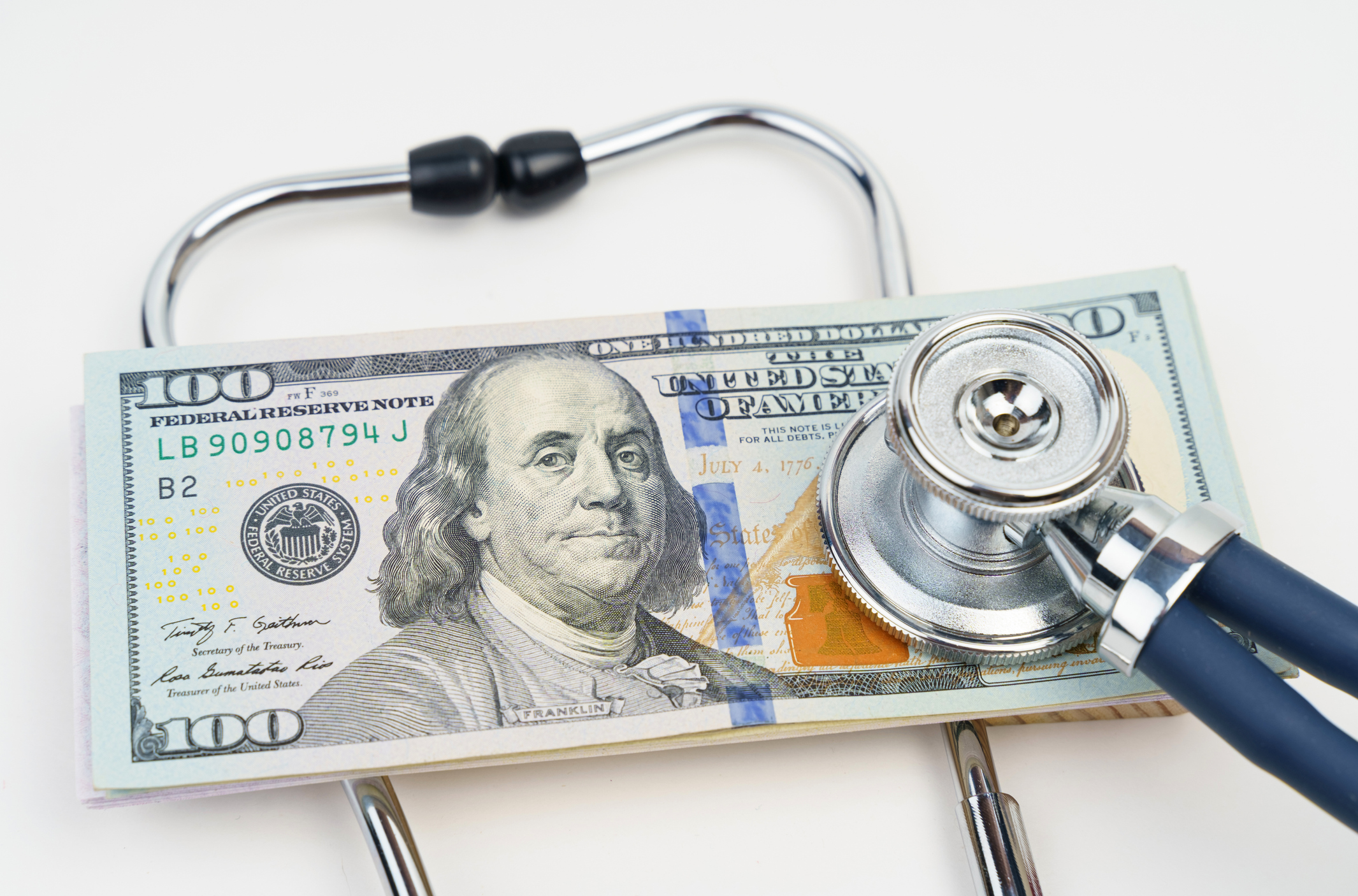Nearly 1 in 3 U.S. adults who are unemployed or underemployed could not pay anything for medical care
Wide swaths of poorer, unemployed and under-employed Americans face the coronavirus pandemic on a financial precipice, with little or no resources to pay for treatment if they catch the disease, a new survey shows.
The survey, by HealthCare.com, reveals that between one-third to just under half of the adults in the United States who have no more than a part-time job or earn less than $40,000 a year face the crisis without the ability to pay anything out-of-pocket. Amid yawning gaps in access to health care, the same peril faces a third of those in racial minority groups.
Confronted with that reality, 14% to 15% of people in racially- and class-disadvantaged groups say they would not go to a doctor or hospital if they get sick. In comparison, much smaller portions of wealthier, employed or retired people, as well as those who identify as white, report the same reluctance or financial woes.
The survey, of roughly 2,500 Americans, raises the specter of the virus continuing to race faster through the nation’s most vulnerable neighborhoods, where poorer people live in the closest quarters with the fewest financial options.
Among the major findings:
- 54% of adults who are unemployed, working part-time, students or taking care of their families say they would be not very to not at all financially prepared to deal with the healthcare costs if they caught the virus. Just 38% of those who work full time, or are retired or disabled, fall into that category.
- 36% of these more challenged groups reported having no money to spend on medical care, compared to only 22% of full-time workers, retirees, and disabled.
- Half of all people with annual incomes below $40,000 (50%) say they could not afford any out-of-pocket medical expenses versus only one in 15 (7%) of those whose incomes are at least $80,000.
- More than half of black, Hispanic, Asian and other racial minority groups (55%) say they are not very to not at all financially prepared for falling ill, compared to just under four in 10 whites (39%).
- One in six unemployed or underemployed adults (16%) say they would not seek medical treatment if they caught the virus, compared to one in 14 other adults (7%).
- Similar or wider gaps in financial preparedness, ability to pay out-of-pocket, and intention to seek medical treatment emerged between people with no more than a high-school education versus those with college degrees.
- Just under one in four of those who reported being unemployed (24%) said they had lost jobs because of the virus or the resulting economic fallout.
The survey results offer out a double-dose of concern as they follow an earlier HealthCare.com study revealing that the same groups who would struggle more to pay for care are taking fewer precautions to slow the pandemic, including less social distancing and hand washing.
The survey also spotlights the long-running and unresolved debate in the United States over who has access to healthcare, how it should be funded and whether the government should take it over. Disparities between the wealthy and poor are among the issues that have dominated the Democratic presidential primary as candidates have debated whether to work within the current system of publicly and privately funded care or move to replace it with a government-run system.
The latest audit of America covered a range of questions connected to how well people are prepared for the pandemic, including their access to insurance, how they would pay for medical treatment, whether they would seek care and whether the fallout from the disease has cost them their jobs. Results were broken down by age, income, educational levels, gender and other categories.
!function(e,i,n,s){var t=”InfogramEmbeds”,d=e.getElementsByTagName(“script”)[0];if(window[t]&&window[t].initialized)window[t].process&&window[t].process();else if(!e.getElementById(n)){var o=e.createElement(“script”);o.async=1,o.id=n,o.src=”https://e.infogram.com/js/dist/embed-loader-min.js”,d.parentNode.insertBefore(o,d)}}(document,0,”infogram-async”);U.S. Adults With Health insurance
Overall, 13%, or one in eight, are uninsured. But as with other questions, the results vary widely from group to group.
Among unemployed or underemployed Americans (part-time workers, people caring for families and students), 22%, or more than one in five, say they have no health insurance. That’s more than three times the figure of 6%, or one in 16, for the employed, retired and permanently disabled, who are more often covered at work, by the government or through family members or partners.
The gap is roughly the same for people with no more than a high school diploma (18%) versus those with a four-year college degree (6%) and even worse for people with incomes less than $40,000 (19%) versus those with incomes of $80,000 or more (4%) and adults 18 to 34 years old (21%) compared with Americans 55 and older (5%.)
Some 20% of people in racial minority groups lack insurance, compared to 9% of whites.
“Unemployed individuals and others without health insurance have multiple avenues to get health insurance,” said Jeff Smedsrud, co-founder of HealthCare.com. “For example, they may be eligible for COBRA, they may be eligible for an Obamacare plan with a large premium subsidy, they may be newly eligible for Medicaid, and many will be eligible for short-term medical insurance. The choice for each individual is unique. All types of insurance will cover testing and diagnosis for COVID-19 at no cost to the insured.”
Financially prepared or unprepared
Nearly half (45%) of U.S. adults said they were not very or not at all prepared financially for the cost of treatment if they caught the virus.
But 54% of unemployed or underemployed adults reported being unprepared while 38% of others put themselves in that category. Similar or wider gaps emerged between people who are poorer versus wealthier (64% to 21%) and have high school diplomas versus four-year college degrees (54% to 34%). The difference was 50% to 36% for younger versus older adults and 55% to 39% between non-whites and whites.
!function(e,i,n,s){var t=”InfogramEmbeds”,d=e.getElementsByTagName(“script”)[0];if(window[t]&&window[t].initialized)window[t].process&&window[t].process();else if(!e.getElementById(n)){var o=e.createElement(“script”);o.async=1,o.id=n,o.src=”https://e.infogram.com/js/dist/embed-loader-min.js”,d.parentNode.insertBefore(o,d)}}(document,0,”infogram-async”);Money for treatment
While 27% of U.S. adults said they could not pay anything for medical care, that figure rose to 36% for a combination of unemployed, students or marginally employed Americans (33% for part-time workers). It dropped to 22% for the combined cluster of full-time workers, the retired and the disabled.
The same predicament confronts 49% of people with incomes under $40,000 compared to just 7% for people whose income is at least $80,000 and 35% of people with only a high school diploma versus 15% for college graduates. The gap between white and other groups was smaller (34% to 24%) while there was no gap between younger and adults.
!function(e,i,n,s){var t=”InfogramEmbeds”,d=e.getElementsByTagName(“script”)[0];if(window[t]&&window[t].initialized)window[t].process&&window[t].process();else if(!e.getElementById(n)){var o=e.createElement(“script”);o.async=1,o.id=n,o.src=”https://e.infogram.com/js/dist/embed-loader-min.js”,d.parentNode.insertBefore(o,d)}}(document,0,”infogram-async”);Foregoing care
One in nine, or 11%, of U.S. adults said they would not seek medical treatment if they got the virus, but the number again split significantly depending on circumstances: 16% of unemployed or underemployed would try to ride out the illness without medical care while 7% of others would try that. The divide was similar between lower – and higher-income (14% to 5%) high school – and college-educated (15% to 8%) and younger and older Americans (18% to 5%).
The racial divide was smaller – 15% for minority groups compared to 10% for whites.
Recently unemployed
Among unemployed people, 24% said they lost their jobs because of the economic fallout from the virus outbreak. Based on the survey, the impact fell most heavily on people under age 35 (29%) and Hispanic (29%) workers.
Methodology
HealthCare.com commissioned YouGov Plc to conduct the survey. All figures, unless otherwise stated, are from YouGov Plc. The total sample size was 2,491 adults. Fieldwork was undertaken between April 1-3, 2020. The survey was carried out online and meets rigorous quality standards. It employed a non-probability-based sample using both quotas upfront during collection and then a weighting scheme on the back end designed and proven to provide nationally representative results. The survey has a margin error of two percentage points, plus or minus.



